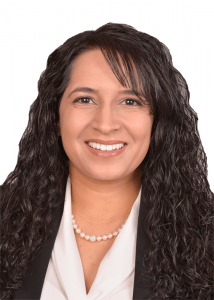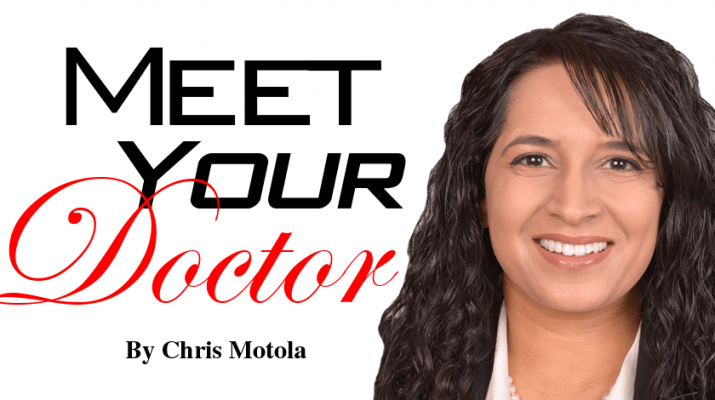New chief wants to turn SUNY Upstate’s breast cancer program into national leader for breast care management
By Chris Motola

Q: You’re new the head of the breast cancer program at SUNY Upstate. What does the program do?
A: We take care of patients with both benign and malignant breast disease. We’re involved in multi-disciplinary management, particularly of breast cancer patients. I’m really excited to be here. It’s a great institution, a great group of people.
Q: How much of the program is focused on detection versus, say, innovating new ways to treat the disease?
A: We do recommend that women over the age of 40 start getting screened. The prior recommendations were every year; some groups are saying every two years. That’s really a conversation to have with your physician based on your family history of breast cancer. You should still definitely have a clinical breast exam every year. The earlier that we’re able to find cancers, the more options we’ll likely have for treatment, as well as clinical trial options. So, we’re big advocates of screening and mammography.
Q: What made you want to lead the program, and where do you want to take it?
A: I think this is an amazing institution with incredible people. My thought was it would be wonderful to help the program grow and expand. I think there’s an excellent framework here, but I think there are things we can do to make our services more wide-reaching, not just locally, but regionally. We’d like to be the regional leader for breast care management in Central and even Upstate New York. And over time, we’d like to be a national leader as well.
Q: What are the steps to getting there?
A: The first step is to have a good multi-disciplinary clinic where patients see a breast surgeon, a medical oncologist, a radiation oncologist, and have their imaging reviewed, see a geneticist and any support staff they need to. We already have that in place. I believe we’re one of the few local institutions really offering that level of a clinical experience. Other institutions do offer multi-disciplinary care, but we actually have the opportunity to be seen, say, in a Friday afternoon by as many of these providers as they need to. So, I think being seen in that fashion is the most optimal way to ideally treat breast cancer because you have all the experts who will be involved in your care coming up with a plan together, and then you have all the support services that are available to you. So that’s a huge foundation. The next in line I’d say is research, whether it’s participation in national clinical trials or investigation-initiated studies. That’s huge. I think the fact that we’re a teaching institution is important as well. Since we’re teaching residents, our clinicians have to be very up-to-date with the latest literature and advancements.
Q: What kinds of new developments have there been in breast cancer treatment?
A: I think a very hot topic the past few years has been management of the lymph nodes in the underarm area. It’s thought that with most breast cancers, if it spreads, it will go to the lymph nodes in the underarm. There’s been a huge a paradigm shift since 2010 in terms of the types of surgery we offer to patients with cancer in those lymph nodes. A study found that people with limited amounts of disease in those underarm lymph nodes could perhaps choose a smaller surgery and then have radiation rather pursue the bigger surgery thereafter. So, we kind of expanded on that to continue to learn more about how to manage these underarm lymph nodes. The newest advancement came a few years ago with patients getting medical therapeutic chemotherapy upfront. In the past, again, everyone who had known cancer in that area always got the bigger surgery, but now we can do a more targeted procedure. We can do a mapping of the region with dye and remove a certain number of lymph nodes to get a sampling of the area. And then we can decide if you’ll need a bigger surgery.
Q: As far as the Central New York region is concerned, are there particular challenges the area has, either in logistics or pathology?
A: I think access to care is always an issue no matter where you are. As you get away from the cities and the major academic areas, it gets harder to come in for your screening mammogram or come in to see your physician. One thing Upstate is doing is rolling out our mobile mammography van. We just had our unveiling about a month ago. This van is going to cover about eight counties in the region. It’ll be going out to more remote areas and will be able to offer advanced, high-tech screening. And then, if there are abnormalities, they can be asked to come into one of the bigger centers. I think it’s very exciting, because it will allow more access to care. Obviously, there are lots of great hospitals in the region capable of taking care of breast cancer patients, but we do feel as though there’s a benefit to being seen in an academic setting in terms of multi-disciplinary care, research and the teaching opportunities. Because of that, we’re trying to set up satellites or partner with local hospitals to offer our services locally. For example, we have oncologists who go up to Oswego and offer services there. I’ve personally started to go out to Auburn Community Hospital. As time goes on, I think you’re going to see more physicians go out and bring some of the care you’d find in an academic setting out to patients in remote areas.
Q: What level of care are you able to provide remotely?
A: When we’re in these other regions, we partner with the teams that are already there, and many of them are already doing a great job. They’ve set up screenings, mammography and diagnostic imaging in place. So, we take a look at what they’re already providing and if we can use those services we will. If not, we’ll bring patients down to us.
Lifelines
Name: Ranjna Sharma, M.D.
Position: Division chief of breast surgery at SUNY Upstate
Previous Appointments: Beth Israel Deaconess Medical Center / Harvard Medical School, 2010-2019
Hometown: Cleveland, Ohio
Education: Ohio State University at Columbus
Affiliations: SUNY Upstate Medical University; Auburn Community Hospital
Organizations: Society of Surgical Oncology; American Society of Breast Surgeons; American College of Surgeons
Family: Husband, daughter, twin boys
Hobbies: Travel

